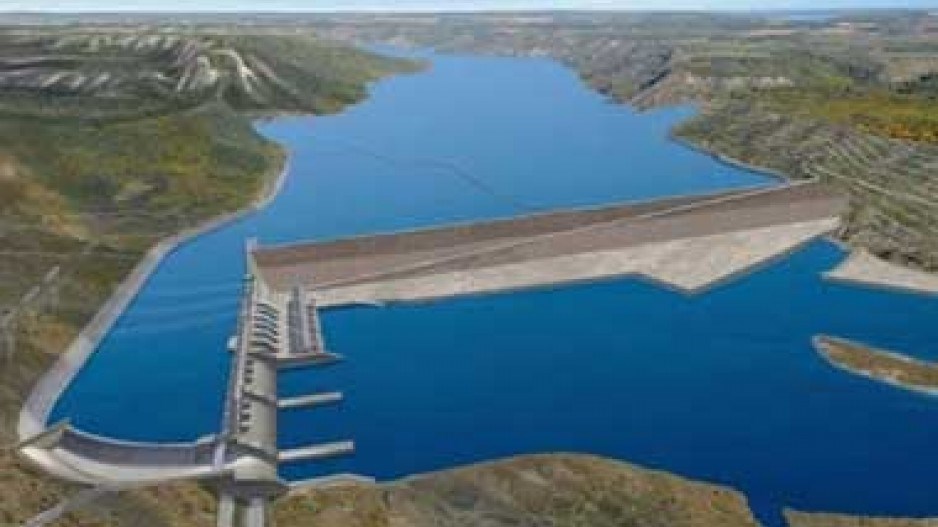Landowners in the Peace Valley who oppose flooding farmland for the Site C hydroelectric dam have brought out a big gun to blow holes in BC Hydro’s assumptions that the $8.8 billion project is the most cost effective.
The Peace Valley Landowners Association issued a report May 26 that concludes that the Site C dam will cost twice as much as other energy generating options.
The report was authored by Robert McCullough, an energy analyst best known for his work in the Enron scandal.
McCullough exposed how utilities – including B.C.’s Powerex – participated in “gaming” the power market in order to sell power to California at inflated rates during that state’s energy crisis.
McCullough’s report on Site C blows holes in some of the fundamental assumptions BC Hydro, the B.C. government and a joint review panel worked from to conclude that Site C dam is the cost effective means of generating power in B.C.
“Using industry standard assumptions, Site C is more than three times as costly as the least expensive option,” McCullough concludes in his report.
But that least expensive option is thermal power generated from burning natural gas – something that was not really an option when Site C was considered.
Thermal power from natural gas is, hands down, the cheapest option for producing power in north America, given its abundance and low price.
But generating power using a mix of renewables and natural gas – as McCullogh’s report suggests – would require scrapping the Clean Energy Act’s requirement that 93% of all new power generation in the province to produce zero emissions.
Asked for a response to McCullough’s report, Mark Jaccard, professor of environmental economics at Simon Fraser University, said he had not read all of McCullough’s report.
But he said that, if McCullough is using a mix of renewables and thermal power from natural gas for his comparisons, then he has made “a huge mistake in misunderstanding the Clean Energy Act.”
“McCullough may be correct that burning fossil fuels like natural gas is cheaper than Site C, but our Clean Energy Act, with much of its focus on electricity, is trying to chart the path to electricity requirements that all developed countries need to have today and that developing countries need to adopt within 10 years,” Jaccard said.
McCullough’s report also concludes that BC Hydro and the joint review panel ignored new data on geothermal energy potential in B.C.
Geothermal power has been developed with some success in other countries. The benefit of thermal power is that, once developed, it provides consistent power generation around the clock, with minimal environmental impacts.
Developers in B.C. have not had a lot of success with geothermal power, however. Although B.C. has an abundance of geothermal potential, past attempts to develop geothermal power here have found it to be simply too expensive.
Last year, the Canadian Geothermal Energy Association issued a report that said BC Hydro and the joint review panel relied on out of date information when they ruled out geothermal power as too expensive.
New “unconventional” geothermal sources have been identified in Northeastern B.C. by the oil and gas sector, the report found.
Since the cost of finding geothermal heat sources is one of the things that makes it so costly, CanGEA said the oil and gas sector had already done some of the heavy lifting.
McCullough’s report will be the topic of a press conference this afternoon.




